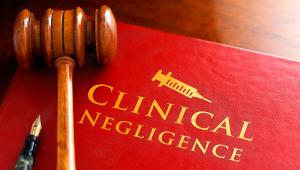26 April 2002
The figure, £500m more than the previous year, was revealed in the annual National Audit Office report on English NHS accounts.
The rise is partly explained by an increase in awards in recent cases. The number of new claims has also risen steeply, from 2,411 in 1999 to 4,115 in 2000.
The money will be paid out over the next 15 to 20 years, but accounting rules stipulate that claims must be accounted for in the year in which they occurred.
Contingent liabilities – for claims that are less likely to succeed – were set at £4bn, raising the bill to a worst-case £8.4bn.
Public Accounts Committee chair Edward Leigh acknowledged the rate of increase in negligence costs was falling – in 1999 it grew by £0.9bn and by £0.7bn in 2000.
But he added: 'The bill has risen in one year by no less than half a billion pounds. This is a staggering sum, of immense significance to the future of the NHS.'
The DoH said it would propose 'fundamental reform' to speed up the system in a white paper being drawn up by Chief Medical Officer Professor Sir Liam Donaldson.
The NAO said the NHS Counter Fraud Service had reduced losses from patients fraudulently claiming free prescription drugs and dentistry from £157m to £99m since 1999.
Comptroller and auditor general Sir John Bourn gave an unqualified opinion on the NHS accounts for 2000/01. He said all 356 trusts had broken even over the year and only one health authority had overspent. Bexley and Greenwich health authority, which had funding of £300m, overspent by £0.9m.
PFapr2002



















